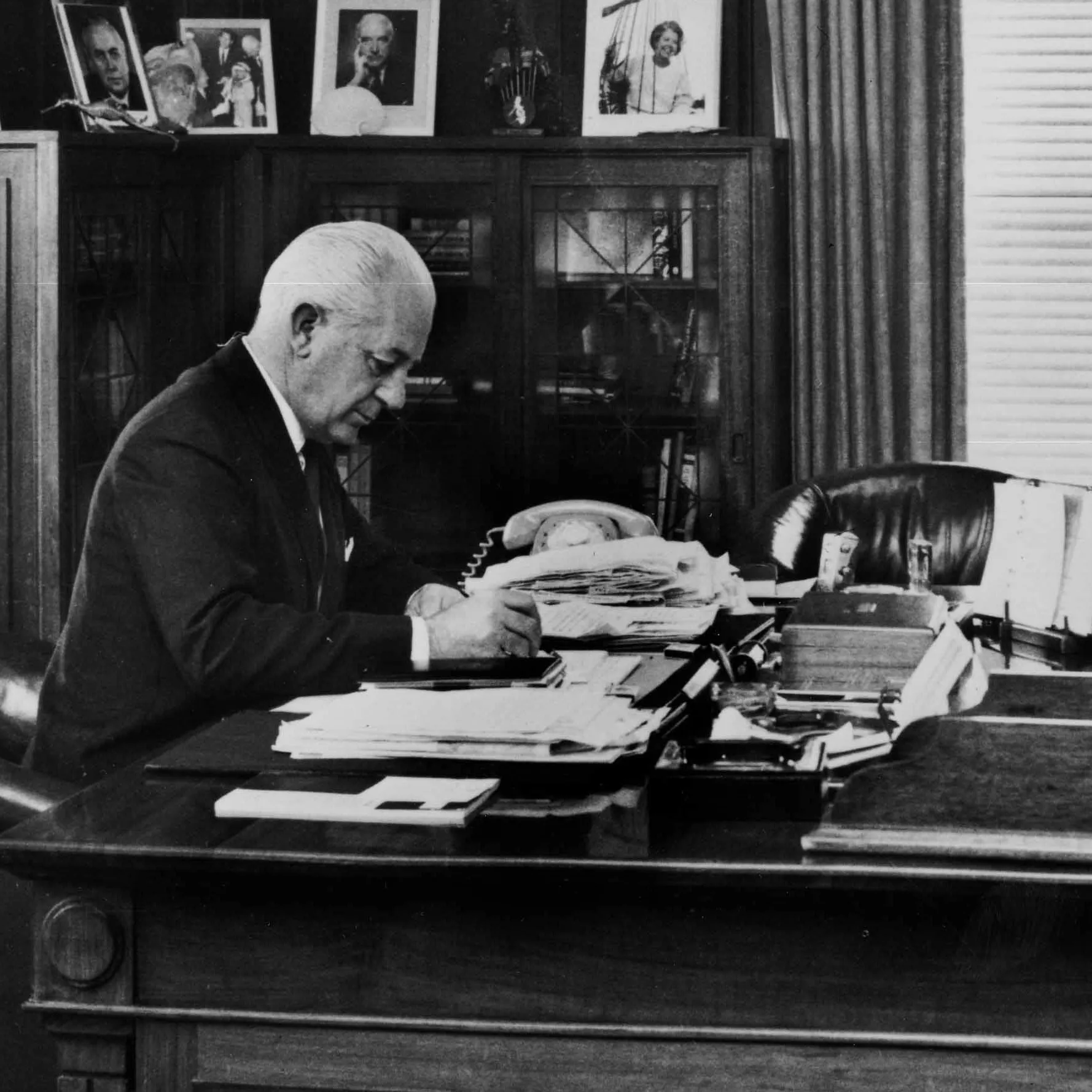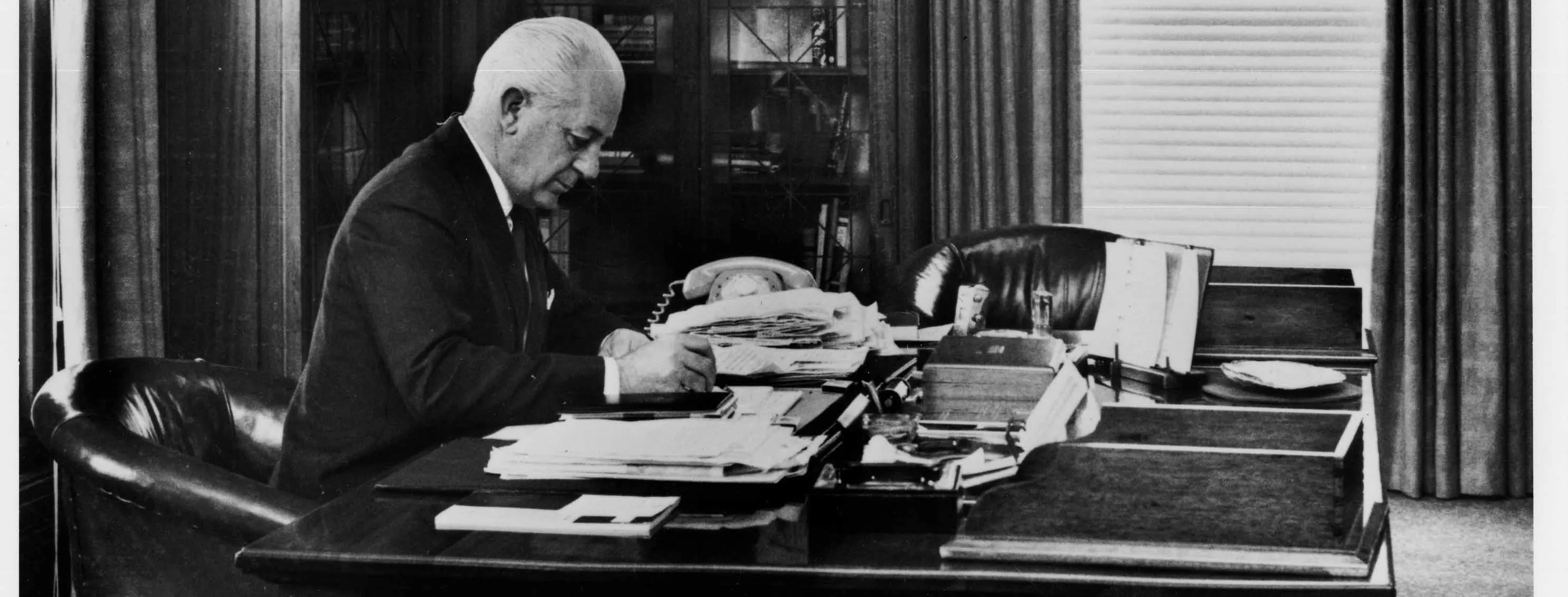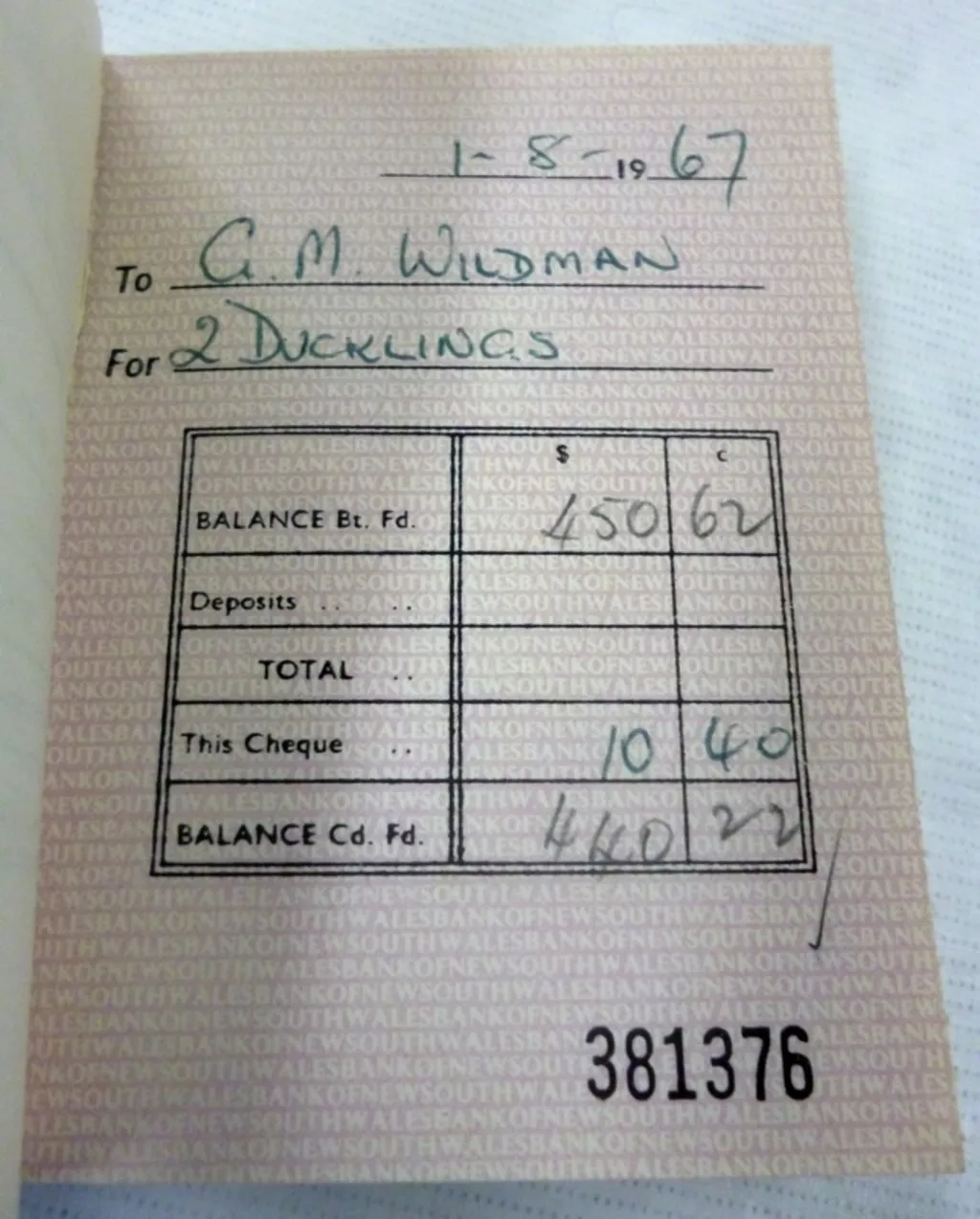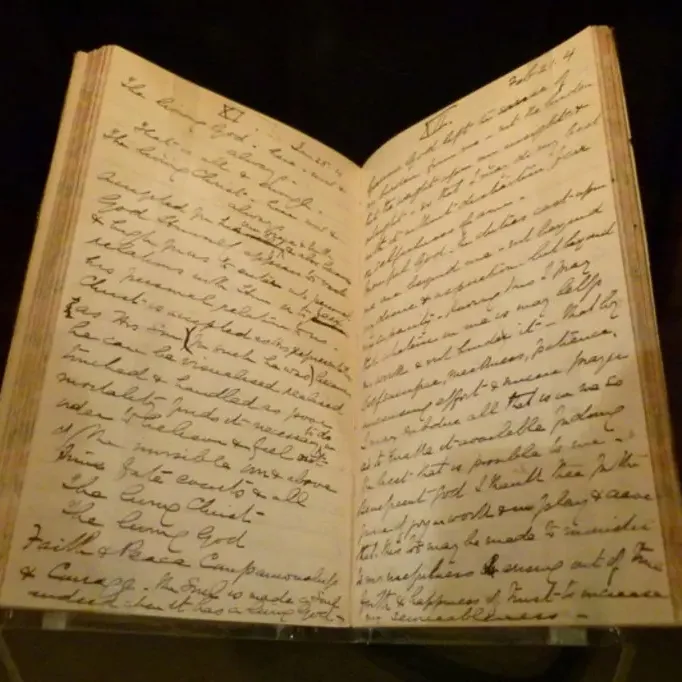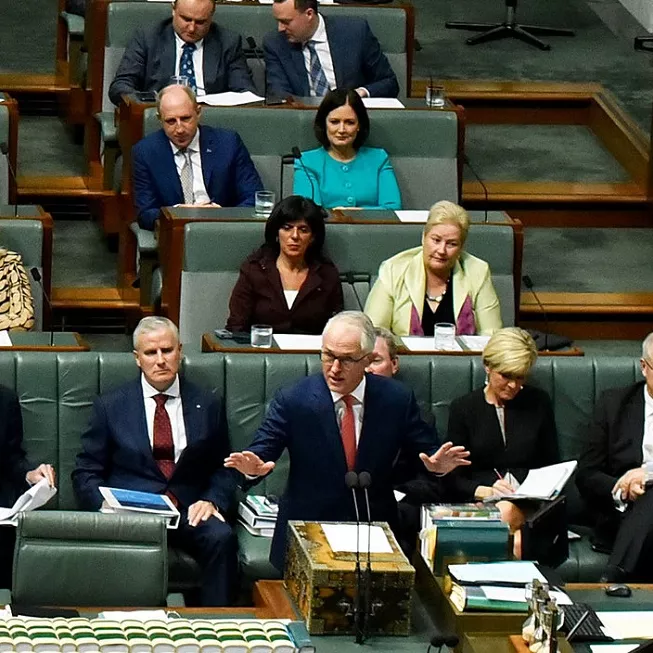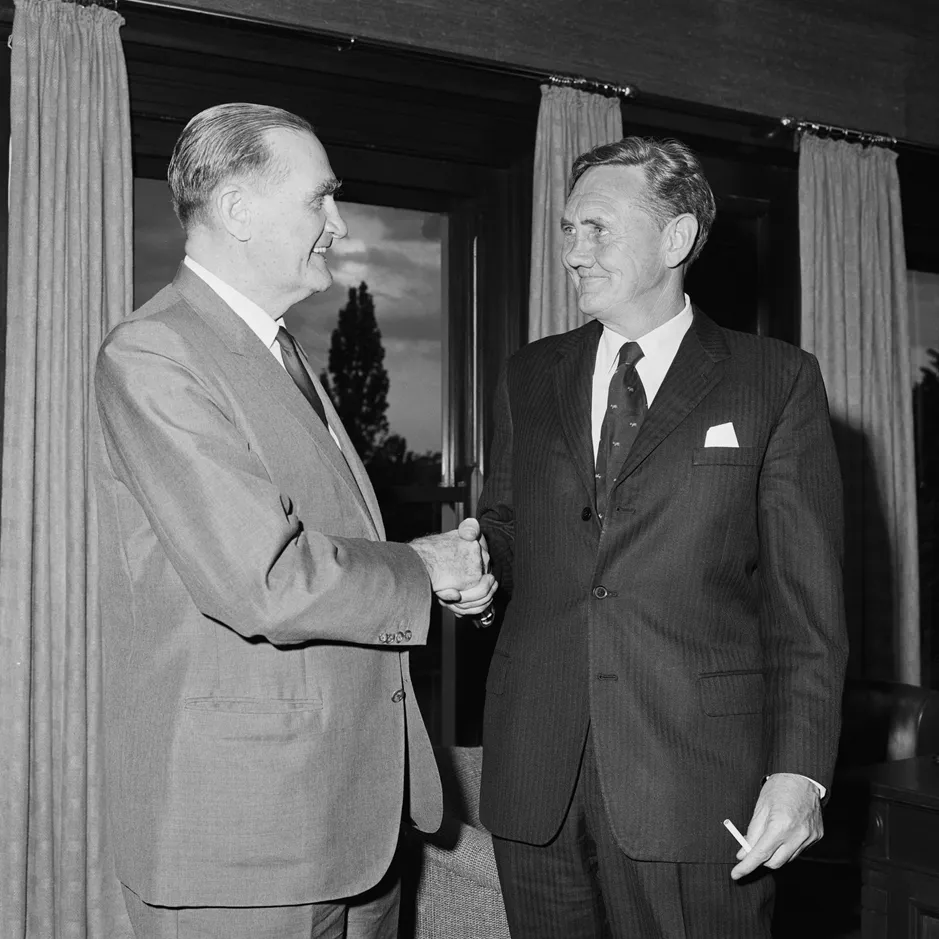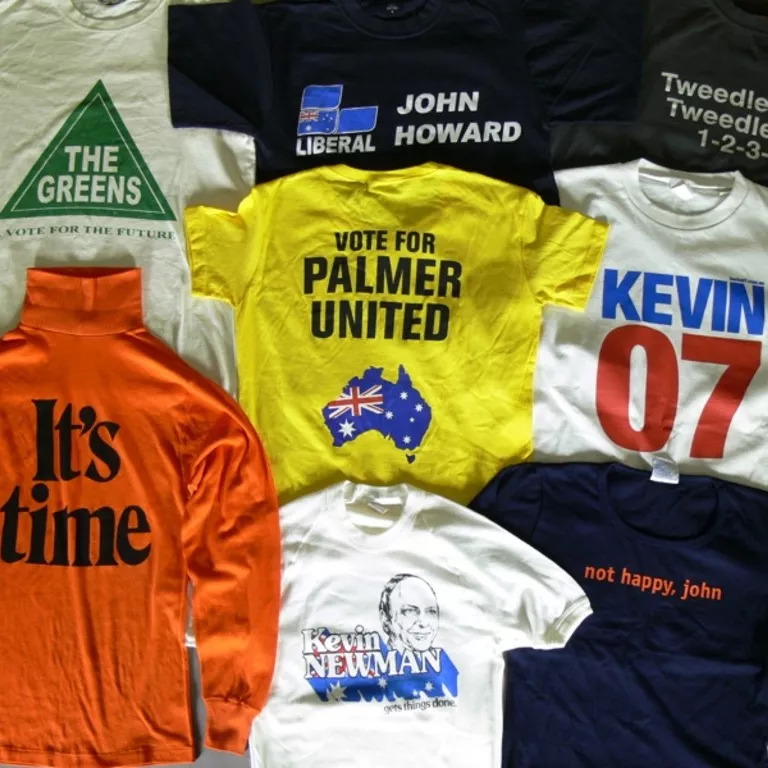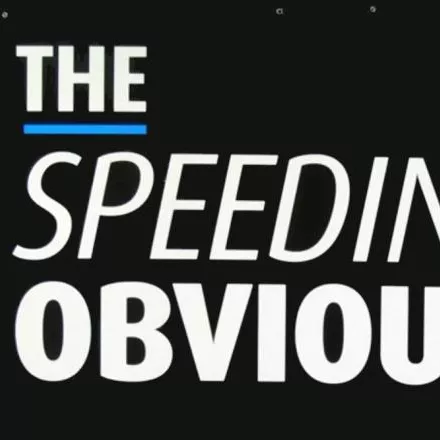Credit, debit and loss: the banking records of Harold Holt
- DateFri, 05 Sep 2014
You can tell a lot about someone from what they buy. These stubs from Holt’s cheque books and deposit book provide a unique insight into his everyday life and the things he held dear.
Holt, who was Federal Treasurer from 1958 to 1966 before he became Prime Minister, kept meticulous records of his own finances as well as those of his government. Some of the stubs evidence his well-known enthusiasm for horseracing. (‘If he had any vices’, wrote his biographer Tom Frame, ‘they were probably gambling and politics.’) Other cheque stubs show his personal charm and style: he donated to numerous charities, and was a frequent giver of gifts and flowers. The stubs record personal tragedy, such as the payment for the funeral of Holt’s younger brother Cliff, who died in March 1967. They also reveal intriguing incongruities, such as the August 1967 purchase of two ducklings. Even the cheque stubs for more mundane payments — for dry-cleaning and dentistry, gas bills and groceries, car rego and council rates — bring Holt back to life, and place us in his world, in a way few other documents can.
Holt’s deposit book also provides small leads into larger stories. For example, a stub dated 22 July 1966 records a reimbursement for the costs of hotel accommodation while he and his wife Zara waited for Sir Robert and Dame Pattie Menzies to move out of the prime minister’s official residence, The Lodge. The Holts stayed in the Hotel Canberra until March 1966 while Zara, who found The Lodge dark and depressing, had the place renovated in time for the arrival of the Queen Mother and Prince Charles in April. Another deposit shows when Holt cashed in unused travellers’ cheques bought for his 1966 trip to the United States and Great Britain — the trip during which he declared: ‘All the way with LBJ!’ Aside from the notoriety of this event, the stub conjures up the satisfying image of the Prime Minister of Australia fronting up to a bank teller with his little white pay-in slip. Did he actually do this? Would a prime minister do that today? (And does anyone even use traveller’s cheques anymore?)
There is of course a slightly macabre, and certainly poignant, aspect to delving into such personal documents. On 12 May 1967 Prime Minister Holt purchased equipment for his favourite recreation, spearfishing. Days later he almost drowned while skindiving off Cheviot Beach at Portsea, Victoria. But he understood the dangers, and was undeterred. On 25 October 1967 he wrote a cheque for more spearfishing gear. Less than two months later, he disappeared while swimming in rough seas off Cheviot Beach. This cheque book and others were found in Holt’s briefcase on the day he disappeared: 17 December 1967.
Such documents are fascinating for their mix of curious clues and stark realities of Harold Holt’s life. A cheque stub he wrote in anticipation of a relaxing weekend swimming with friends reminds us that Holt was not merely a name in history. The stub humanises him: he was, of course, an actual person. And we are also reminded that the disappearance of Harold Holt — sometimes a dark joke or a speculative mystery — is really, at its heart, a terrible and enduring tragedy for those who loved him, and for the nation.

